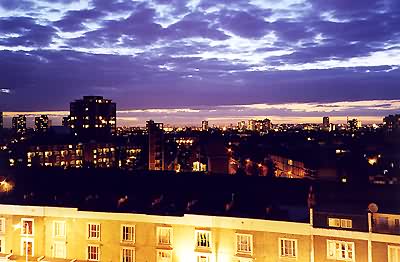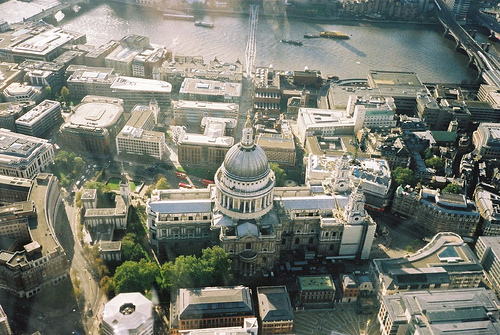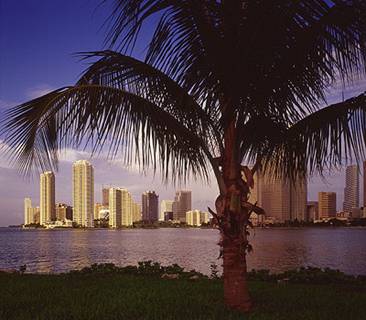156: UK and US Market Update
09-01-2007
PropertyInvesting.net team
UK house prices have been rising at a fair old clip for many months now, particularly in prime London areas – but there is evidence in most areas that house price inflation has slowed, in some areas down to a stand-still. Although London prices have shot up about 15% in the last year, there is a concern that the recent financial market turbulence may take it’s toll on London – we’re on the look out for evidence of this. If the stock market recovers a bit (say 5%) and mergers activities get back to previous level, then people would expect the near  record bonuses to start rolling in starting November. If this happens, expect London prices to continue to rise. But if the sub-prime market fall-out increases and starts to affect London’s banks, jobs and confidence – then impacts city bonuses – this may lead to prices in London dropping. If prices in London start dropping, we would expect other UK areas to follow suit. At this stage, as long as inflation was under 2.5% (currently CPI is 1.9%) then the Bank of England would step in and lower interest rates. So what we are staying is, there is a self leveling mechanism out there – its hard to believe the Bank of England would let house prices crash. If inflation stays under control, employment is okay and the economy clips along at a GDP range 2-3%, there is little reason to believe prices will crash. It’s always possible if Banks start folding, or large scale default on debt takes place, but it’s difficult to imagine this would happen without a big economic trigger.
record bonuses to start rolling in starting November. If this happens, expect London prices to continue to rise. But if the sub-prime market fall-out increases and starts to affect London’s banks, jobs and confidence – then impacts city bonuses – this may lead to prices in London dropping. If prices in London start dropping, we would expect other UK areas to follow suit. At this stage, as long as inflation was under 2.5% (currently CPI is 1.9%) then the Bank of England would step in and lower interest rates. So what we are staying is, there is a self leveling mechanism out there – its hard to believe the Bank of England would let house prices crash. If inflation stays under control, employment is okay and the economy clips along at a GDP range 2-3%, there is little reason to believe prices will crash. It’s always possible if Banks start folding, or large scale default on debt takes place, but it’s difficult to imagine this would happen without a big economic trigger.
The other thing to consider is that London is no longer a local market – it is a global city which is impacted by global events. Some positive and negative events that affect the London market include:
Positive
· Mergers, acquisition, private equity, hedge funds, derivatives
· High oil prices (Russian, African, Middle Eastern oil money)
· Finance and banking – particularly with New York, Tokyo and Paris/Frankfurt
· Global corporate profits
· Chinese, Asian, African financial trade
· Tax heaven status – for Asian and Russian billionaires
· Global tourism and air transport hub
· Current level housing supply (most likely)
Negative
· Bank bankruptcy – jobs losses
· City bonuses dry up
· Security - terror attacks
· Global security fears
· Global economic downturn
· Tax changes that affect wealthy immigrants and London financial markets
· Flood of new homes (highly unlikely)
 With the booming oil business in Africa, Middle East – the booming Indian and Chinese economies and more specialized financial tools being used for investing, London stands in a very good position to prosper from the current average global GDP increase of 5% (8% in India and 12% in China). It is cosmopolitan and it’s wealthy immigrants feel at home in London - it’s English speaking and tax benefits are significant for overseas investors. The USA is a difficult country to get into since 2001 to do business and Sabene-Oxley regulations are restrictive and expense – London is seen by many international investors as being less regulated and easier to do business in than many other alternative locations. The Banks also have a good reputation for fair business practices. So don’t expect London house prices to crash – there is simply too much overseas money piling in. And if it stops coming from the USA, it will continue to come from China, Japan, India, the Middle East and Africa – all those oil producing countries have got to do something with
With the booming oil business in Africa, Middle East – the booming Indian and Chinese economies and more specialized financial tools being used for investing, London stands in a very good position to prosper from the current average global GDP increase of 5% (8% in India and 12% in China). It is cosmopolitan and it’s wealthy immigrants feel at home in London - it’s English speaking and tax benefits are significant for overseas investors. The USA is a difficult country to get into since 2001 to do business and Sabene-Oxley regulations are restrictive and expense – London is seen by many international investors as being less regulated and easier to do business in than many other alternative locations. The Banks also have a good reputation for fair business practices. So don’t expect London house prices to crash – there is simply too much overseas money piling in. And if it stops coming from the USA, it will continue to come from China, Japan, India, the Middle East and Africa – all those oil producing countries have got to do something with  their proceeds. $2.1 Trillion in oil revenue a year (82 million bbls/day @ $70/bbl) – some of this ends up in London for investment ($245 Billion is generated by Russia’s oil revenue a year, and $230 Billion by Saudi Arabia).
their proceeds. $2.1 Trillion in oil revenue a year (82 million bbls/day @ $70/bbl) – some of this ends up in London for investment ($245 Billion is generated by Russia’s oil revenue a year, and $230 Billion by Saudi Arabia).
If you believe the oil money will continue to roll into London in future years and the global financial markets will stay strong – then investing in Kensington, Mayfair, Chelsea, Westminster, Knightsbridge and Bayswater – any West End prime locations - is likely a good strategy despite the recent 35% increase in property prices in these areas. Areas which can experience a ripple effect from these prime areas include:
· West Kensington
· Fulham-Hammersmith
· Battersea-Clapham
· Maid Vale
· Islington
· Mid-Town – Bloomsbury, Blackfriars
· Shoreditch, Clerkenwell, Limehouse
· Borough, South Bank, Kennington
· South Hackney
Our current interest rate prediction is that rates will now stay on hold until year end. Inflation will stay below 2.5%, GDP will drop from 2.8% to 2.2% by year end and the Bank of England may be able to start dropping rates by year end as the global economy cools and house price flatten (and start dropping in some markets e.g. West Midlands, Newcastle, Liverpool, west Wales).
US Market Update
The impact of the market turbulence caused by the fall-out from the US sub-prime market is described in Special Report 152. The financial markets had a far quieter week last week, but no-one really knows whether it could get a lot worse or not. No-one knows the extent of the defaults and financial distress. It’s interesting that stock  markets can tumble 10% almost overnight yet house prices have hardly dropped at all in most US areas! No wonder most of the property investing community does not focus in buying stocks and shares! The US economy actually grew at 4% in Q2 2007 (albeit mostly through government spending), but most experts believe the economy will slow in the next few months as housing confidence deteriorates and this impacts consumer spending. Most people believe a recession will be avoided. Remember, all the news stories are designed to sell newspapers and advertising – it’s easy being a doomunger and many media people make a lot of money out of it.
markets can tumble 10% almost overnight yet house prices have hardly dropped at all in most US areas! No wonder most of the property investing community does not focus in buying stocks and shares! The US economy actually grew at 4% in Q2 2007 (albeit mostly through government spending), but most experts believe the economy will slow in the next few months as housing confidence deteriorates and this impacts consumer spending. Most people believe a recession will be avoided. Remember, all the news stories are designed to sell newspapers and advertising – it’s easy being a doomunger and many media people make a lot of money out of it.
Median house prices in the USA still grew in Q2 2007, but are thought now to be sliding in many areas in part because of sub-prime woes and  the increase in foreclosures. Poorer areas and manufacturing dominated area will be hit hardest – examples are the poorer areas of Detroit (car manufacturing area where jobs losses are highest). In the longer term, this issue is likely to unwind and the economy to become better balanced – a key issue being the USA’s high budget deficit. It spends more than it creates. The dollar weakens helps stimulate exports, but it also tends to drive inflation. So if inflation remains high and interest rates high – more distress can be anticipated. Overall, despite the USA’s challenges, PropertyInvesting.net remain reasonably upbeat about it’s prospects. The population growth from 300 to 400 million by 2040, efficient working practices and good education system plus highly motivated worker ethic mean the USA will likely beat the GDP growth of most Western European countries in the future. We all know about the USA’s dependence on imported oil, but the country has vast quantities of high grade coal and fertile land for alternatives like bio-fuel and bio-mass so when the oil crisis occurs – after an almighty shock – it’s likely the USA will eventually adapt to a new business model using advances in technology triggers by this crisis. Large swaths of suburbia more than an hours commute from work may feel a big negative impact – but people will work from home more, driver smaller cars, do 4 days weeks in the office, stay overnight in hotels, share cars to work and the like – they will adapt. So the most experienced investors are likely quietly buying foreclosures at the moment in the down market – and waiting for the interest rates to drop later this year. They will likely make serious money doing this. But don’t expect them all to be advertising this!
the increase in foreclosures. Poorer areas and manufacturing dominated area will be hit hardest – examples are the poorer areas of Detroit (car manufacturing area where jobs losses are highest). In the longer term, this issue is likely to unwind and the economy to become better balanced – a key issue being the USA’s high budget deficit. It spends more than it creates. The dollar weakens helps stimulate exports, but it also tends to drive inflation. So if inflation remains high and interest rates high – more distress can be anticipated. Overall, despite the USA’s challenges, PropertyInvesting.net remain reasonably upbeat about it’s prospects. The population growth from 300 to 400 million by 2040, efficient working practices and good education system plus highly motivated worker ethic mean the USA will likely beat the GDP growth of most Western European countries in the future. We all know about the USA’s dependence on imported oil, but the country has vast quantities of high grade coal and fertile land for alternatives like bio-fuel and bio-mass so when the oil crisis occurs – after an almighty shock – it’s likely the USA will eventually adapt to a new business model using advances in technology triggers by this crisis. Large swaths of suburbia more than an hours commute from work may feel a big negative impact – but people will work from home more, driver smaller cars, do 4 days weeks in the office, stay overnight in hotels, share cars to work and the like – they will adapt. So the most experienced investors are likely quietly buying foreclosures at the moment in the down market – and waiting for the interest rates to drop later this year. They will likely make serious money doing this. But don’t expect them all to be advertising this!
back to top
 record bonuses to start rolling in starting November. If this happens, expect
record bonuses to start rolling in starting November. If this happens, expect  With the booming oil business in Africa, Middle East – the booming Indian and Chinese economies and more specialized financial tools being used for investing,
With the booming oil business in Africa, Middle East – the booming Indian and Chinese economies and more specialized financial tools being used for investing,  their proceeds. $2.1 Trillion in oil revenue a year (82 million bbls/day @ $70/bbl) – some of this ends up in
their proceeds. $2.1 Trillion in oil revenue a year (82 million bbls/day @ $70/bbl) – some of this ends up in  markets can tumble 10% almost overnight yet house prices have hardly dropped at all in most
markets can tumble 10% almost overnight yet house prices have hardly dropped at all in most  the increase in foreclosures. Poorer areas and manufacturing dominated area will be hit hardest – examples are the poorer areas of
the increase in foreclosures. Poorer areas and manufacturing dominated area will be hit hardest – examples are the poorer areas of 
